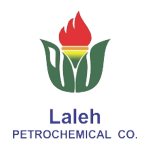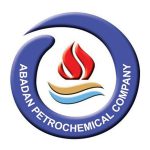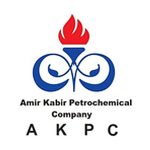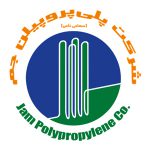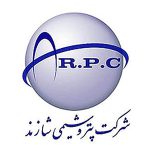Sodium Sulfide
Sodium Sulfide, also known as disodium sulfide and sodium sulfuret, is a white solid and soluble in water. Its chemical formula is Na2S and This compound is capable of producing alkaline solutions. When this material and its hydrates are exposed to air, they may release hydrogen sulfide gas (H2S), which has a very strong odor resembling that of rotten eggs. Industrial sodium sulfide, due to the presence of polysulfides, is often seen in yellow and reddish brick colors.
This substance, known for its density of 1.85 gr/cm3, is used as a mineral salt in various applications. In the industry, this chemical compound finds application in different fields. For instance, in the paper and leather industry, it is used to convert rawhide into tanned leather and to purify the chemicals used in paper production.
Additionally, in mining, it is utilized for extracting metals such as copper and zinc from ores. Other uses of sodium sulfide include its application in water treatment and the removal of organic pollutants and heavy metals, its use as an auxiliary agent in chemical reactions, and its application in the pesticide industry.
However, caution must be exercised when using this material, as it may irritate the skin and eyes, and contact with large amounts of it can be hazardous, leading to adverse health effects.
Exporting Sodium Sulfide to various countries with the best price has been one of the achievements of Petro Nour Mehr Company in recent years.
For more accurate information regarding prices or purchasing the product, it is better to contact the sales department of Petro Nour Mehr Company.
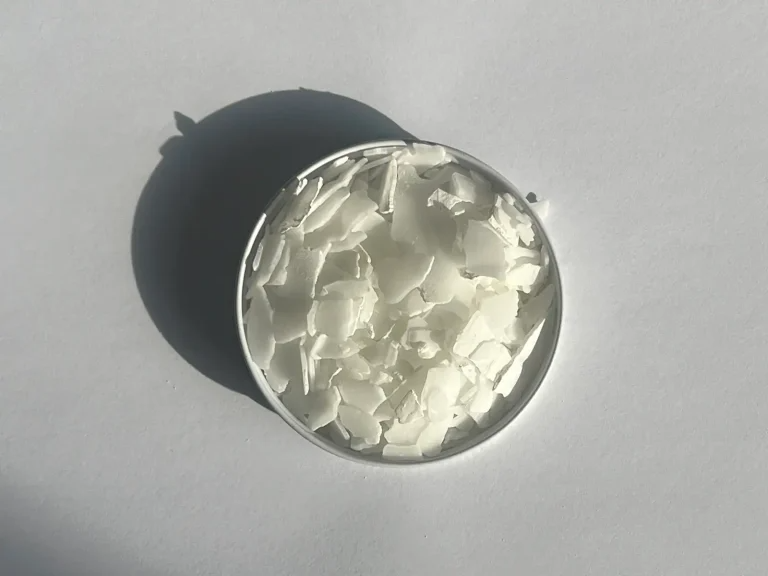
Sodium Sulfide Manufacturers in Iran
Some popular factories are producers of this material in Iran.
Sodium Sulfide Manufacturers Worldwide
Major Sodium Sulfide manufacturers worldwide include:
In the continent of America, many companies and major manufacturers are active in the production of this product. Some of these companies include:
- Pencco Inc : This company is also one of the prominent producers of Sodium Sulfide in the United States.
- Vantage Specialty Chemicals : This company is involved in the production of chemicals and advanced compounds, including Sodium Sulfide.
China, the United States, Germany, and Iran are recognized as some of the largest producers of Sodium Sulfide in the world. These countries play a significant role in the global market by producing vast quantities of this material. The importance of Sodium Sulfide production in these regions and their impact on meeting the global demand for this vital substance is undeniable. Furthermore, the high volume of it exports by these countries significantly influences the global market. These companies are just a few examples of the major Sodium Sulfide producers in the continent of America, and many others are active in this field as well.
Applications of Sodium Sulfide
Sodium Sulfide, with the chemical formula Na2S, is a chemical compound used in various industries. Some of the applications of this compound include:
Water treatment : This material is widely used as a chemical compound in water and wastewater treatment processes. It is employed to remove oxygen from water and wastewater, which can help maintain water quality and reduce the activity of aerobic microorganisms. Additionally, it is used in processes to remove chlorine, where it reacts with chlorine and renders it inactive. Moreover, this compound plays a role in reducing metal deposition from water by forming soluble metal compounds, thus preventing water pollution.

- Textile industry : It serves various roles in the textile industry. In the bleaching process of fabrics, it is used to reduce unwanted colors and improve the appearance of textiles. By reacting with sulfur compounds, it removes yellow or cloudy colors, resulting in fabrics with a whiter and smoother appearance. This material is also utilized in chlorine removal from textiles.
Through its reaction with chlorine, soluble compounds are created, separating chlorine from the fabric and protecting it from the hazards of exposure to high levels of chlorine. However, the use of this material should always be done with caution and in compliance with safety guidelines to ensure safe and hazard-free utilization of this substance.

Leather industry : This material is also used in the leather industry. This important compound plays a role in the tanning process of animal hides. As a tanning agent, Sodium Sulfide intervenes in the removal of organic materials and cleanses the skin during the separation of wool from animal hides.

- Chemical industries : Sodium Sulfide (Na2S) is used in chemical industries for sulfonation and sulfonylation processes. These processes are employed in the production of chemicals such as rubber and sulfur dyes.
Mining industries : In mining industries, flotation is known as an important method for separating metal sulfides from ores. It is one of the chemicals used in this process. This compound is capable of bonding with metal sulfides, and by adding it to the mixture of rock and metal sulfide, the separation of metal from rock is accomplished.
Papermaking industry : In the papermaking industry, this material is used as a fundamental chemical for pulp production. This substance acts as an oxidizing agent in the process of preparing paper pulp. Sodium Sulfide aids in softening wood cellulose, prepared through the hydrogen peroxide-calcium sulfite system (lignin removal). Thus, this chemical substance is utilized in improving the quality and characteristics of paper.

- Agricultural industry : It is used in agriculture as a pesticide. This compound, produced from the reaction of sodium with sulfur, has significant power in killing and controlling field pests and parasites. The use of this material as a pesticide can be highly effective in reducing the damages caused by these organisms to agricultural products.

This material, as a multifunctional product, holds great importance in various industries due to its chemical properties and diverse applications. Overall, this chemical compound is utilized in a wide range of industries, including fabric bleaching, leather tanning, metal separation in mining industries, pesticide application in agriculture, pulp preparation, and production of chemical materials such as rubber and sulfur dyes.
Storage Conditions for Sodium Sulfide
There are some guidelines for better preservation of its quality:
- It is ideal to keep these materials dry and cool; a temperature of less than 25 degrees Celsius is preferable for storage.
- Keep this material out of direct sunlight and ultraviolet light, since these sources of light may alter its chemical and physical characteristics.
- These substances react with acids and solvents, among other compounds. It is therefore recommended to stay away from direct contact with these kinds of compounds.
- During storage and transportation, ensure that this material is protected from scratches and impacts, as physical damages can lead to changes in its structure and chemical properties.
- Packaging for this grade should be made of suitable material to protect it from environmental changes and reduce the penetration of water and air into the packaging.
- Certain items can need particular storage conditions. Consult the manufacturer’s directions in this situation
Sodium Sulfide Packaging
For packaging and exporting Sodium Sulfide powder or flakes, various methods can be employed depending on environmental conditions, product requirements, and transportation facilitation for export. The following are some typical ways that Sodium Sulfide flakes are packaged and exported:
Packaging in Jambo Bags : This method is common for packaging Sodium Sulfide flakes, where the flakes are packed into large bags with varying capacities (usually b 500 to 2000 kilograms). These bags are appropriate for air, sea, and road transportation in addition to protecting the product from contamination and moisture.
Packaging in Small Bags : In this method, Sodium Sulfide flakes are packed into smaller bags with capacities of approximately 20 to 25 kilograms.
Use of Pallets : Sodium Sulfide large pallets.
Choosing the right packaging and exporting strategy for this material powder or flakes can be accomplished with success if international packaging standards, labeling, and transportation requirements are followed. It’s crucial to think about protecting the product from environmental deterioration, shocks, and humidity while it’s being transported.
Advantages and Disadvantages of Sodium Sulfide
Sodium Sulfide is a chemical compound with various advantages and disadvantages. On one hand, this compound is highly beneficial industrially; it is used as a foundational material in industries such as leather, textile, and paper production. Additionally, it serves as an oxidizing agent in processes like dyeing and water purification.
On the other hand, caution must be exercised in its use, as it possesses toxic properties that can harm human health. Moreover, improper use can lead to negative environmental impacts and interaction with other substances like acids and oxidizing agents, potentially resulting in hazardous situations such as explosions and fires. Therefore, the use of Sodium Sulfide should be carried out with strict adherence to safety guidelines and with respect for the environment.
Physical and Chemical Properties of Sodium Sulfide
Sodium Sulfide is a chemical compound with diverse physical and chemical properties:
- It is typically found in the form of white or yellowish powder.
- It exists as a solid at room temperature.
- Its melting and boiling points are approximately 920 and 1130 , respectively.
- It is soluble in water and alcohol, producing an alkaline solution.
- It acts as a weak base.
- In contact with water, it liberates hydrogen sulfide.
- It reacts with many different chemical substances and can participate in various chemical combinations and reactions.
Types of Sodium Sulfide grades
Sodium Sulfide, known by the chemical formula Na2S, is a chemical compound consisting of one sodium atom and two sulfur atoms. This substance is recognized in the form of natural or synthetic white or brown powder. Sodium Sulfide is commercially utilized as a fundamental chemical in various industries. Among its most important applications are in the leather, chemical materials, dye, and paper industries.
This material may exist in various forms and purities. For example:
Crystalline Sodium Sulfide: This type of Sodium Sulfide is in a crystalline state and each molecule can accommodate between seven to nine water molecules in its structure. The purity of this product varies between 29 to 30 percent.
Granular Sodium Sulfide: Sodium Sulfide in this state forms powder or flakes and is obtained in the final stage of the production process. The purity of granular Sodium Sulfide is approximately 60 percent.
Broken Sodium Sulfide: This type of Sodium Sulfide is obtained from breaking larger pieces and is used after the drying process. Its purity is typically between 55 to 60 percent.
To view other chemical products, you can click here.
How to Buy Polyethylene?
- Buy from a reputable and authorized supplier that holds necessary certifications and guarantees quality.
- Compare the prices of these materials in different markets and compare them with the global market price.
- Examine the sales conditions regarding quantity, delivery time, packaging, transportation methods, and payment terms.
- If you intend to import polystyrene from foreign countries, investigate customs and legal regulations and comply with export and import regulations.
- Contact bravopolymer to obtain the most suitable export price based on your conditions.
- After signing the contract, you can place your order.
- Secure and suitable payment methods according to customer preferences are provided by the company.
- Then, the loading stage is completed by selecting and introducing a transport company.
- Necessary documents for customs clearance at the destination city are also provided to customers by bravopolymer.
The largest distributor of polymers in the Middle East



